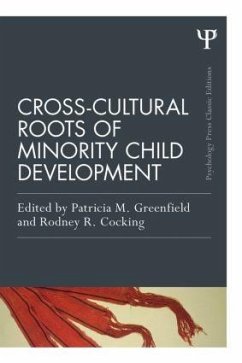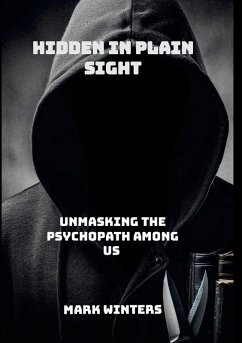
The Hidden Roots of Critical Psychology

PAYBACK Punkte
29 °P sammeln!
`Billig's is a fascinating work of brilliant scholarship. It is written in an elegant style, spiced with humour, and gives one the feeling that it was a labour of love. It can be recommended without reservation' - Journal of Community and Applied Social Psychology `This is a quite extraordinary and original book. Billig has managed seamlessly to interweave History of Philosophy, History of Psychology, Critical Psychology and a deep grasp of the social nature of language and, moreover, do so in a very readable fashion' - Graham Richards, Formerly Professor of History of Psychology, Staffordshir...
`Billig's is a fascinating work of brilliant scholarship. It is written in an elegant style, spiced with humour, and gives one the feeling that it was a labour of love. It can be recommended without reservation' - Journal of Community and Applied Social Psychology `This is a quite extraordinary and original book. Billig has managed seamlessly to interweave History of Philosophy, History of Psychology, Critical Psychology and a deep grasp of the social nature of language and, moreover, do so in a very readable fashion' - Graham Richards, Formerly Professor of History of Psychology, Staffordshire University and Director of the British Psychological Society History of Psychology Centre, London `I can't quite capture how much I enjoyed this book. In beautiful, witty prose and through exemplary scholarship, Billig has produced an historical work that engages with profoundly important ideas not just for contemporary critical psychology but for psychology in general. Books as good as this are rare' - Alan Collins, Senior Lecturer in Psychology, Lancaster University Today new forms of critical psychology are challenging the cognitive revolution that has dominated psychology for the past three decades. This book explores the historical roots of these new psychologies. It demonstrates that their ideas are not quite as new as is often supposed. In the early modern period, thinkers like the Earl of Shaftesbury and Thomas Reid reacted against Locke's cognitive psychology in ways that were surprisingly modern, if not post-modern. However, until now, they have been virtually written out of psychology's history. It is now time to recognize the great originality of their psychological thinking. Writing in a non-technical style, Michael Billig seeks to overturn the dominant views of psychology's history. In so doing, he gives a fascinating account of the times, bringing psychology's hidden past vividly back to life.














